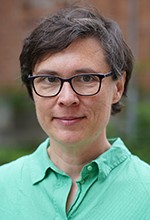Prof. Dr. Suntje Schmidt
Projekte
Drittmittelprojekte
abgeschlossene Leitprojekte
abgeschlossene Drittmittelprojekte
Abgeschlossene Brückenprojekte
Ausgewählte Publikationen nach Erscheinungsjahr
Ausgewählte Publikationen nach Publikationstyp
Ausgewählte Vorträge
Mitgliedschaften
-
Technische Universität Berlin (Externe Organisation)
-
WIR! – Wandel durch Innovation in der Region (Externe Organisation)
-
Humboldt-Universität zu Berlin. Geographisches Institut (Externe Organisation)
-
Kompetenzzentrum Kultur- und Kreativwirtschaft des Bundes (Externe Organisation)
-
Raumwerk D (Stadt Düsseldorf) (Externe Organisation)
-
Humboldt-Universität zu Berlin. Mathematisch-Naturwissenschaftliche Fakultät (Externe Organisation)
-
Humboldt-Universität zu Berlin (Externe Organisation)
-
Humboldt-Universität zu Berlin. Geographisches Institut (Externe Organisation)
-
Humboldt-Universität zu Berlin. Geographisches Institut (Externe Organisation)
-
Research Group on Collaborative Spaces (Externe Organisation)
-
Gottfried Wilhelm Leibniz Universität Hannover. Institut für Wirtschafts- und Kulturgeographie (Externe Organisation)
-
Gemeinsame Landesplanungsabteilung der Länder Berlin und Brandenburg (Externe Organisation)
-
Staatskanzlei des Landes Brandenburg (Externe Organisation)
-
Gottfried Wilhelm Leibniz Universität Hannover. Institut für Wirtschafts- und Kulturgeographie (Externe Organisation)
-
Hochschule Niederrhein (Externe Organisation)
-
Humboldt-Universität zu Berlin. Geographisches Institut (Externe Organisation)
-
Humboldt-Universität zu Berlin. Geographisches Institut (Externe Organisation)
-
Karl-Franzens-Universität Graz. Institut für Geographie und Raumforschung (Externe Organisation)
-
Humboldt-Universität zu Berlin. Geographisches Institut (Externe Organisation)
-
Humboldt-Universität zu Berlin. Mathematisch-Naturwissenschaftliche Fakultät (Externe Organisation)
-
Gesellschaft für Erdkunde zu Berlin (Externe Organisation)
-
BMFTR - Bundesministerium für Forschung, Technologie und Raumfahrt (Externe Organisation)


